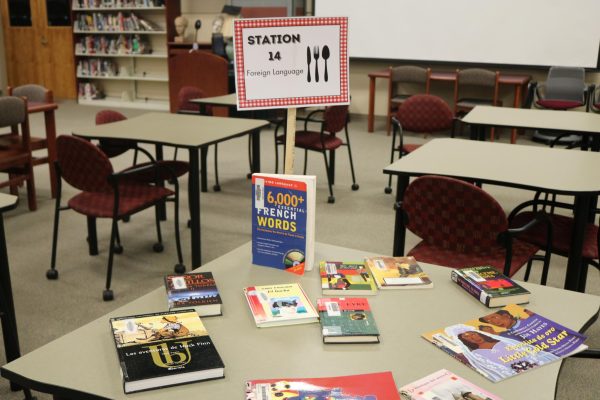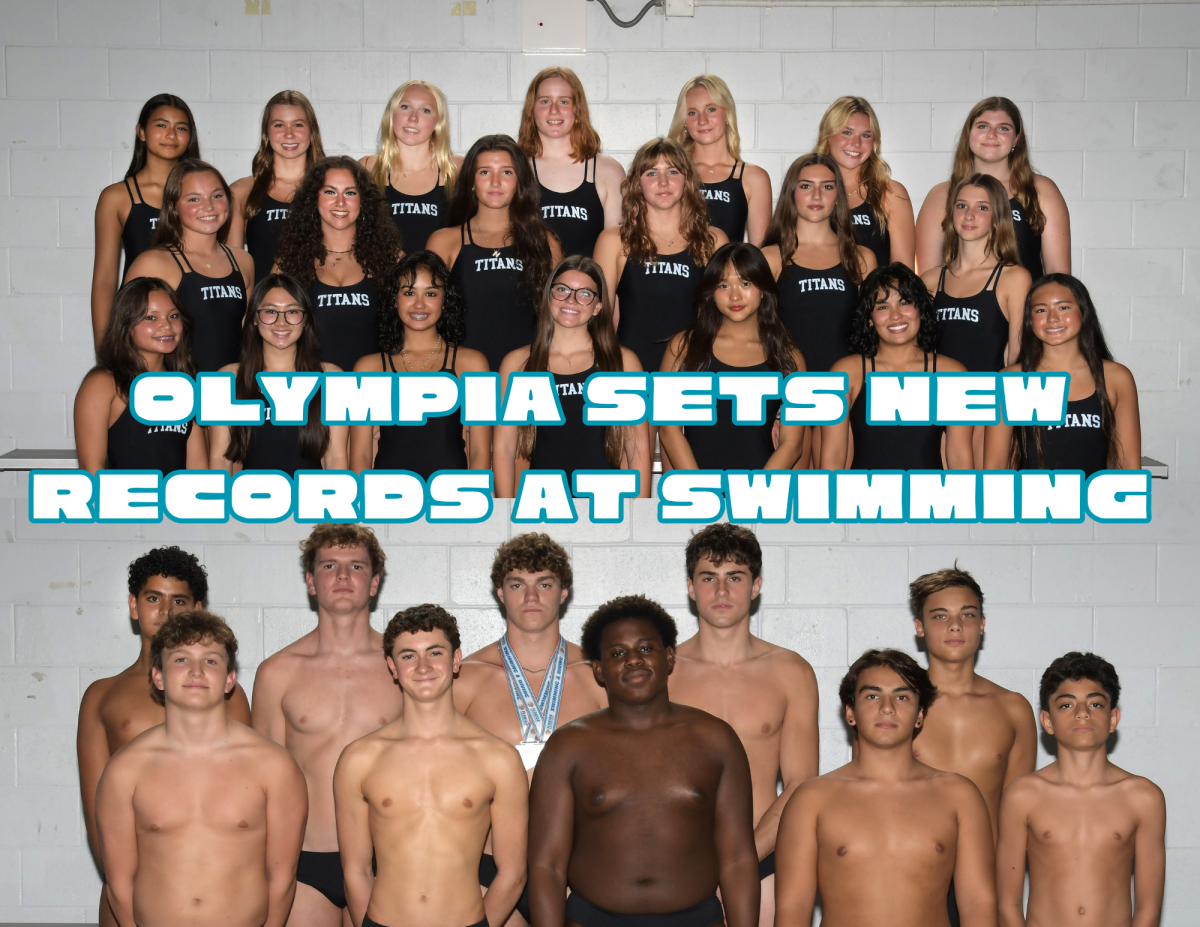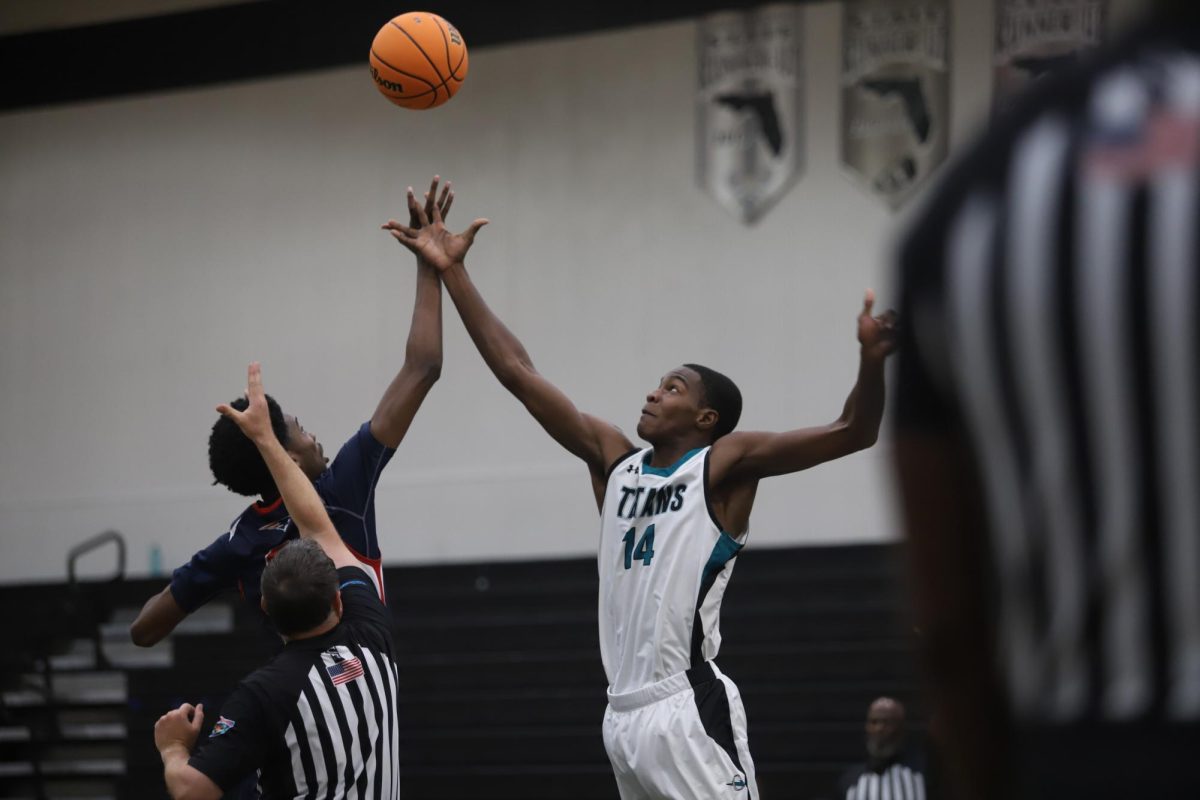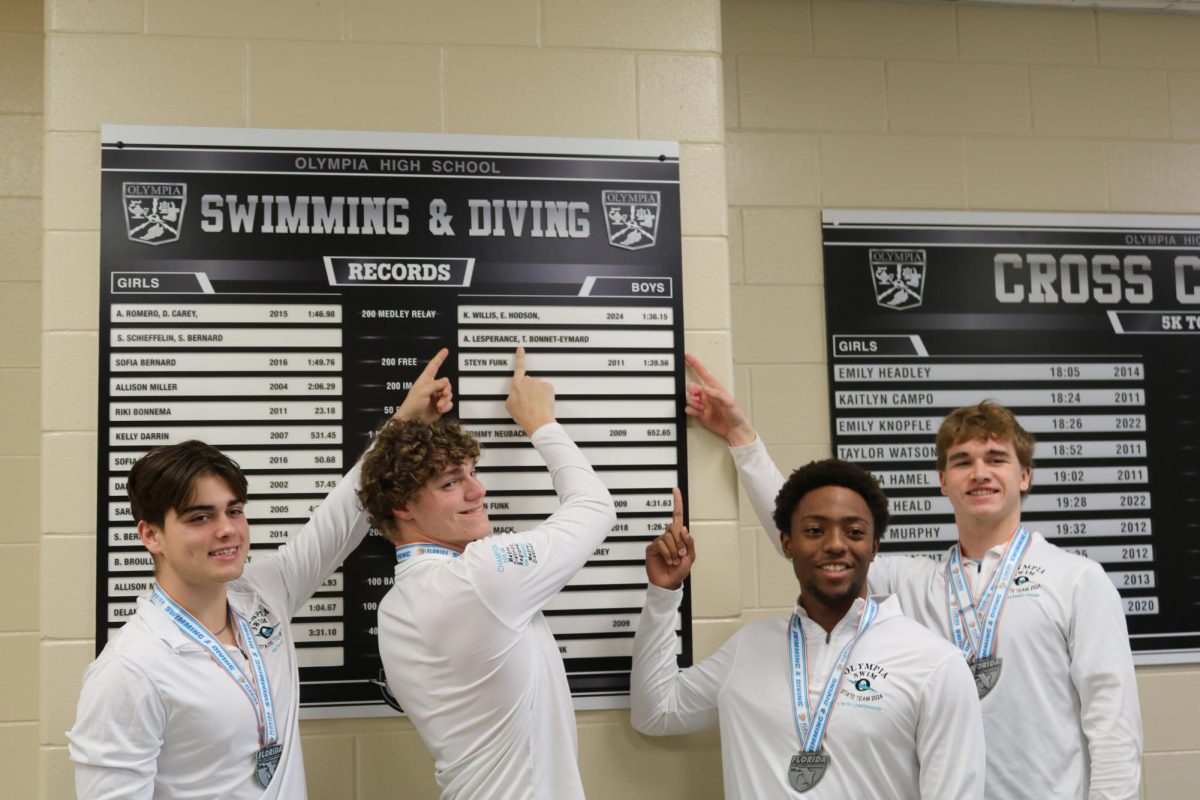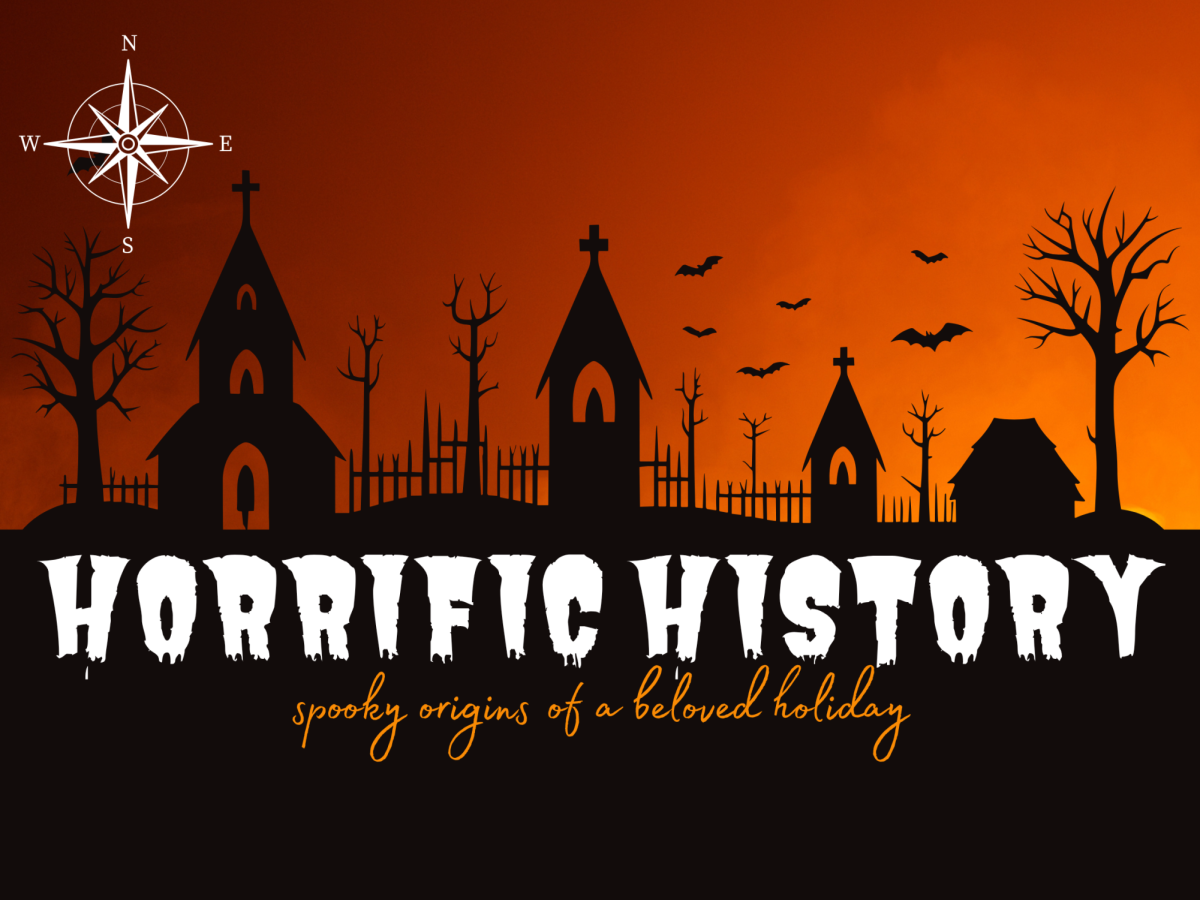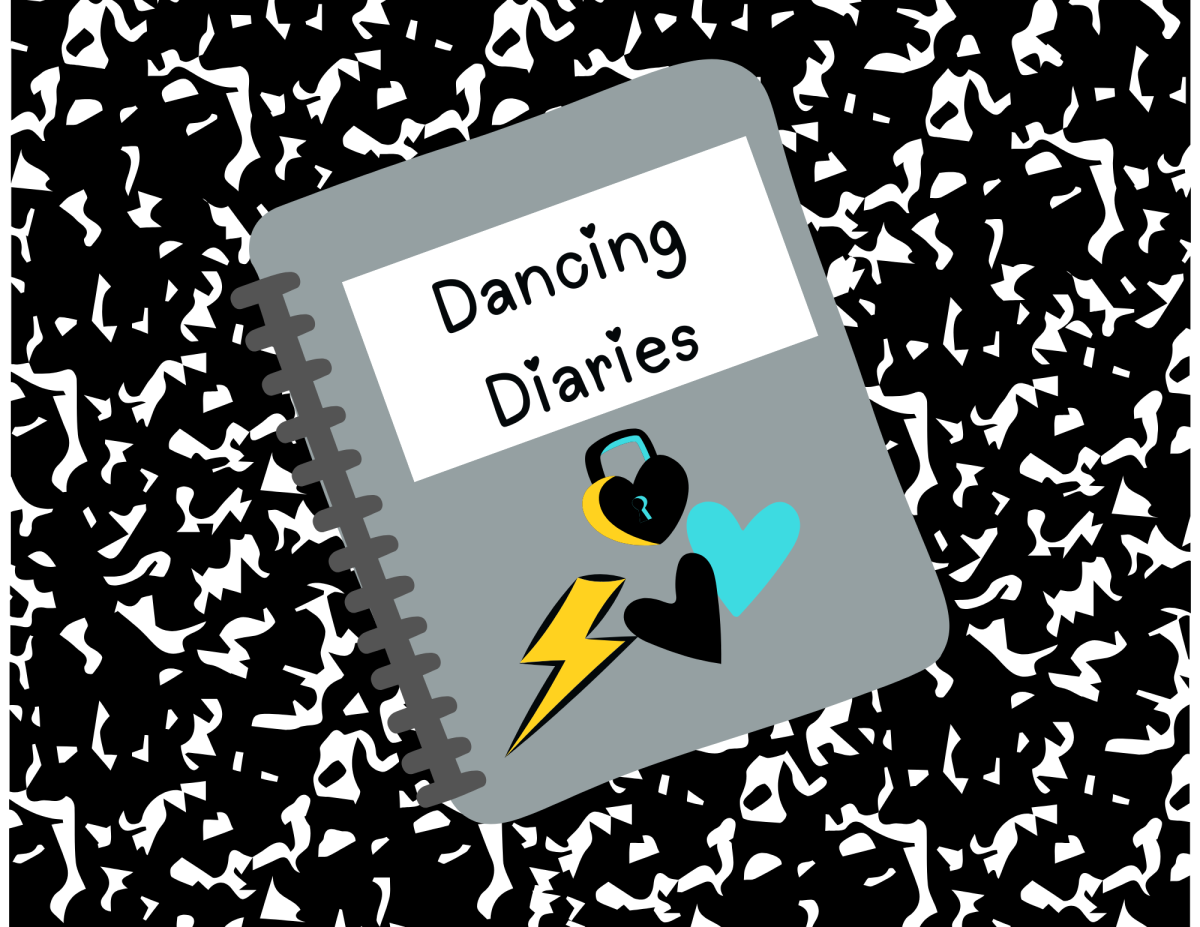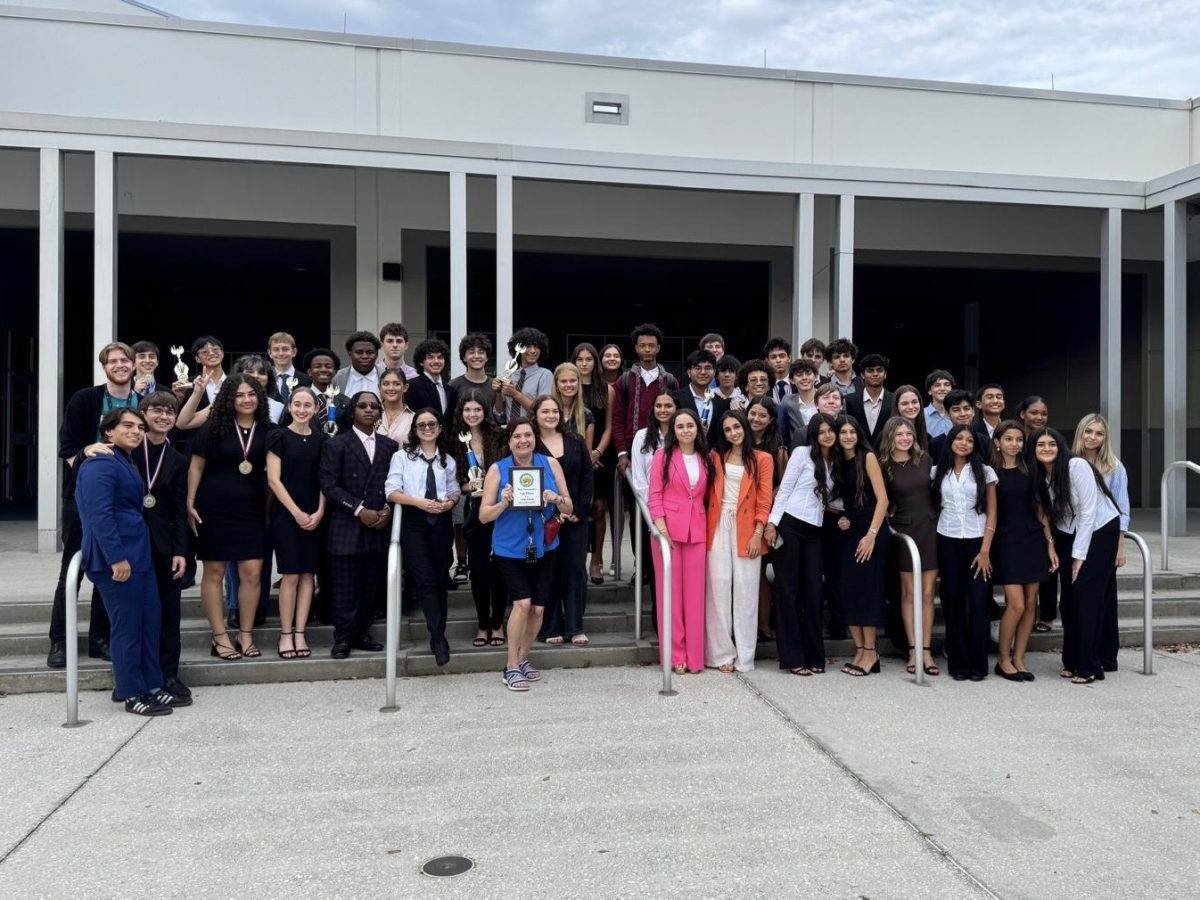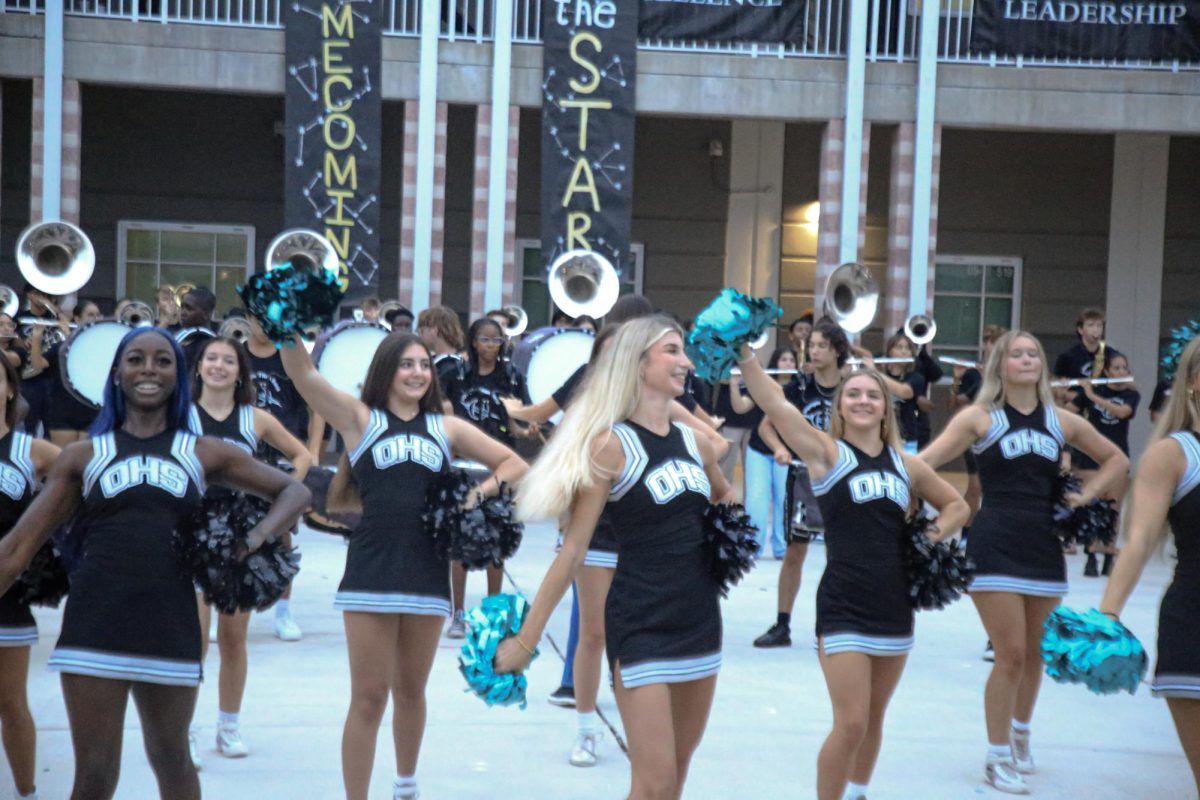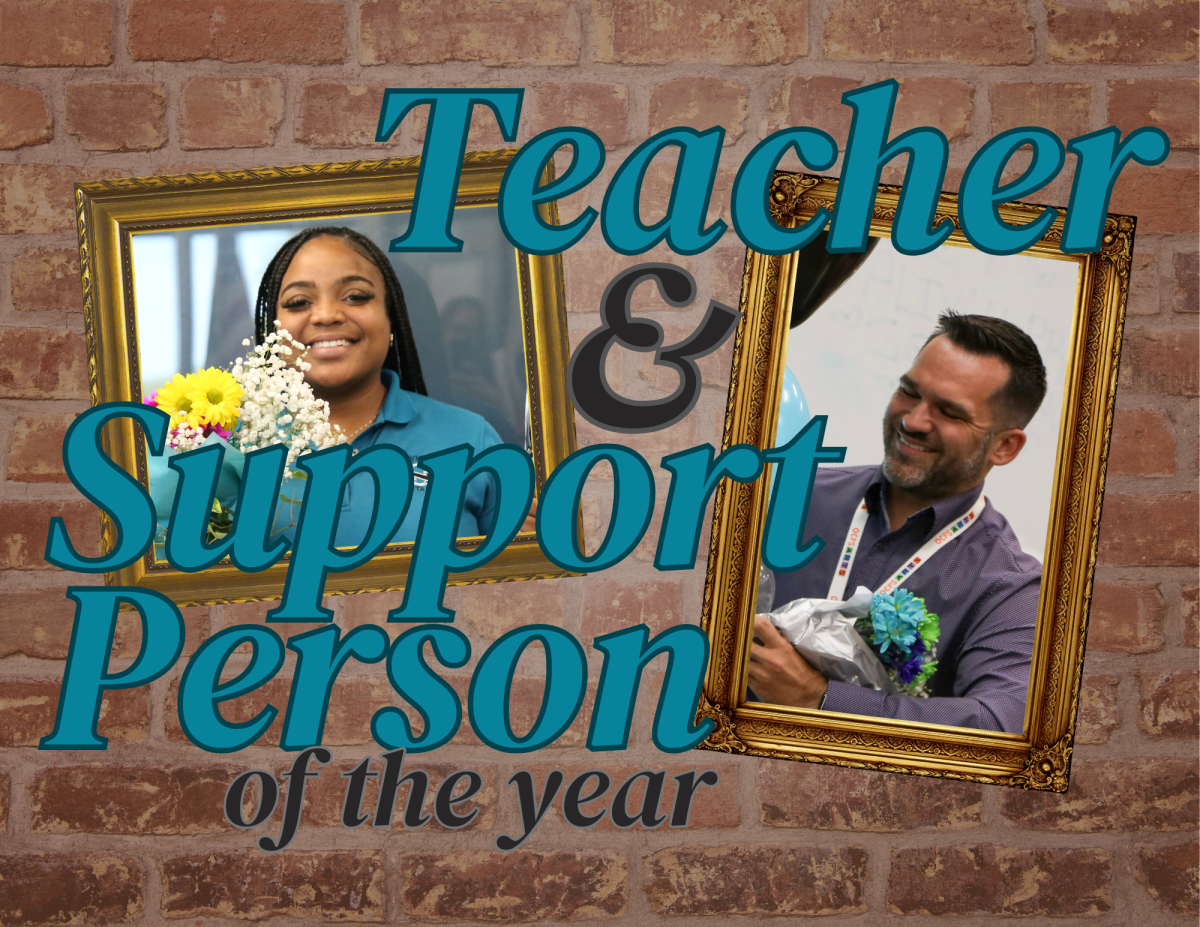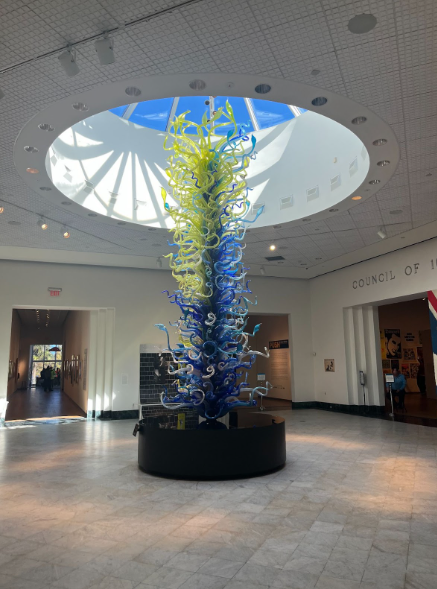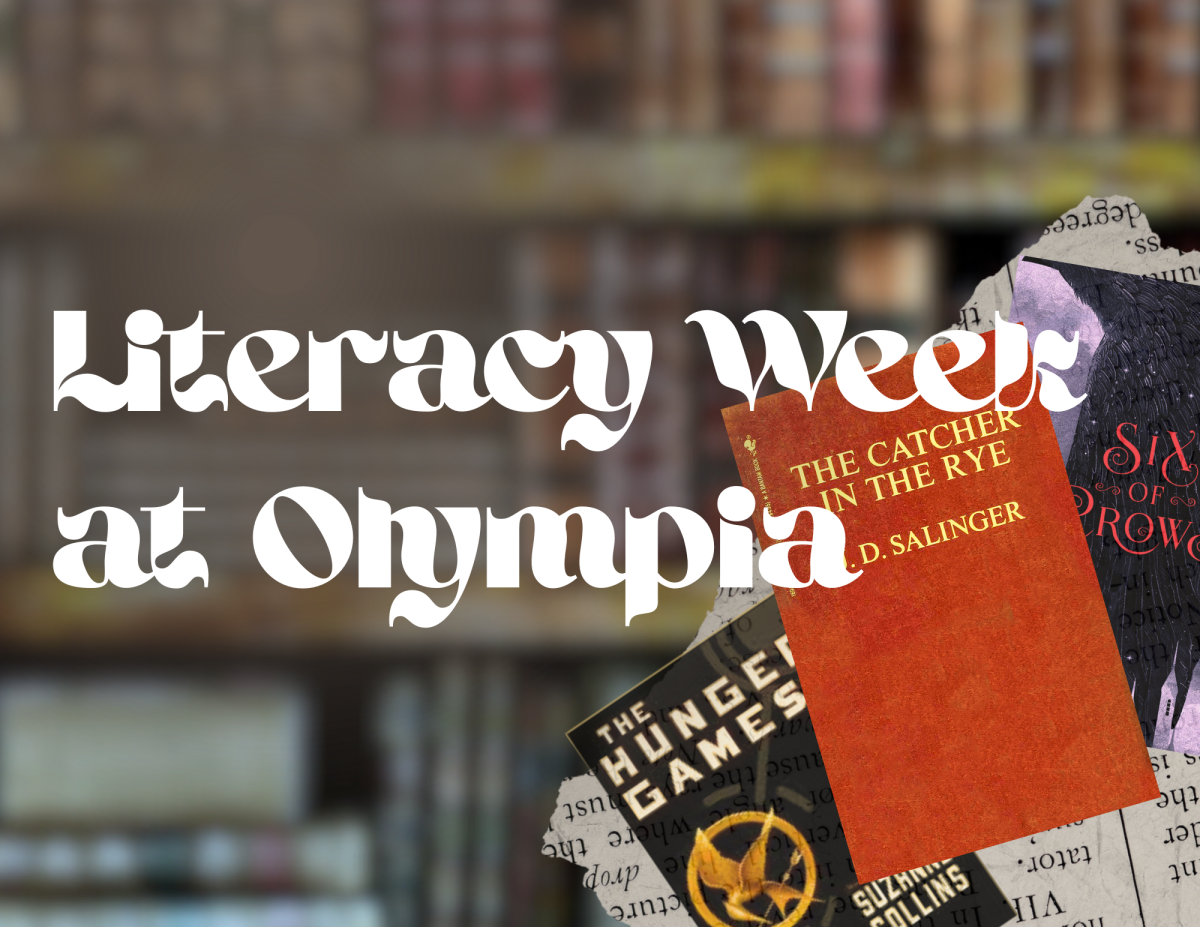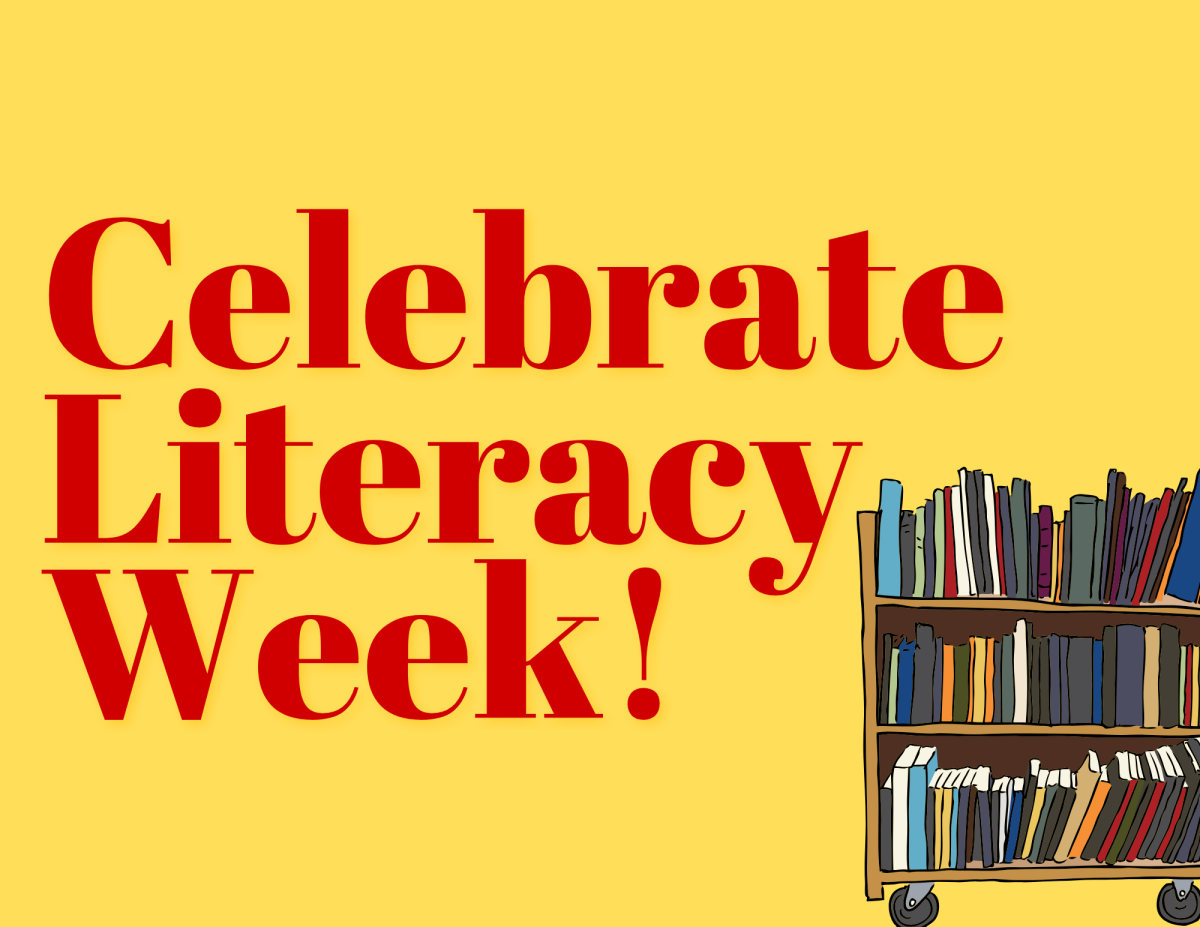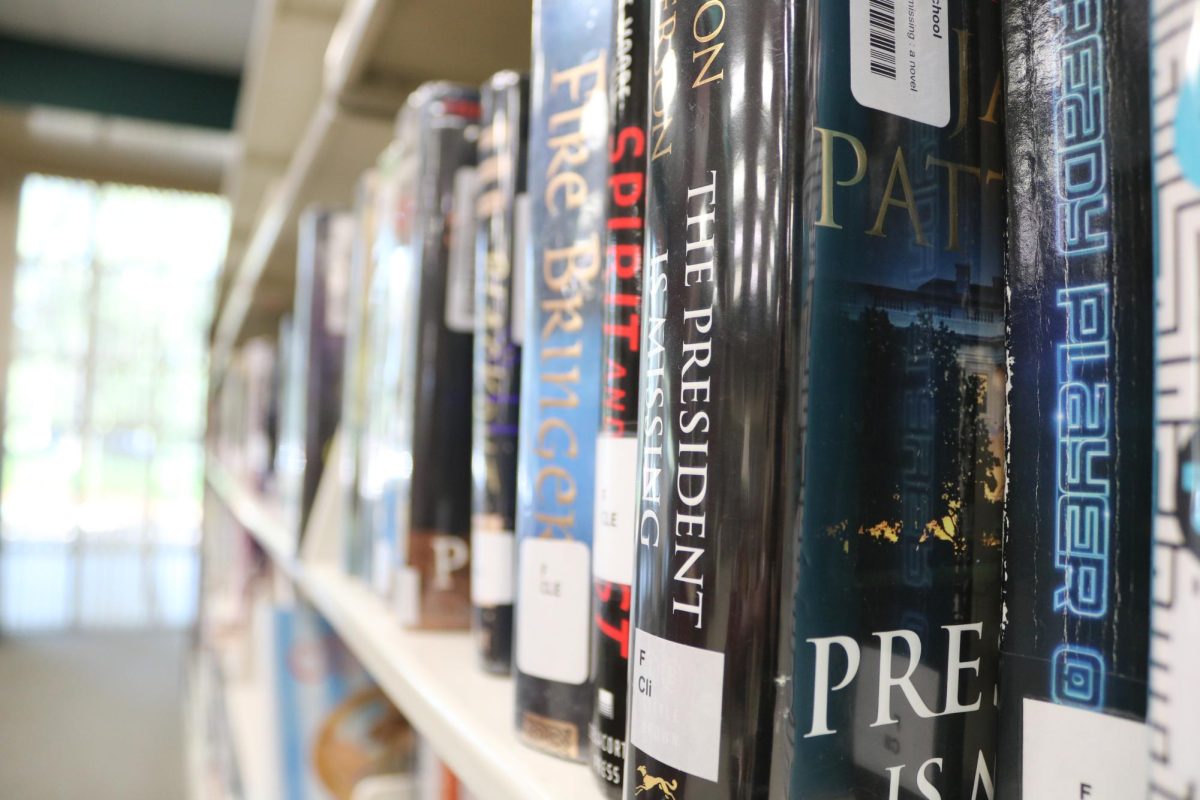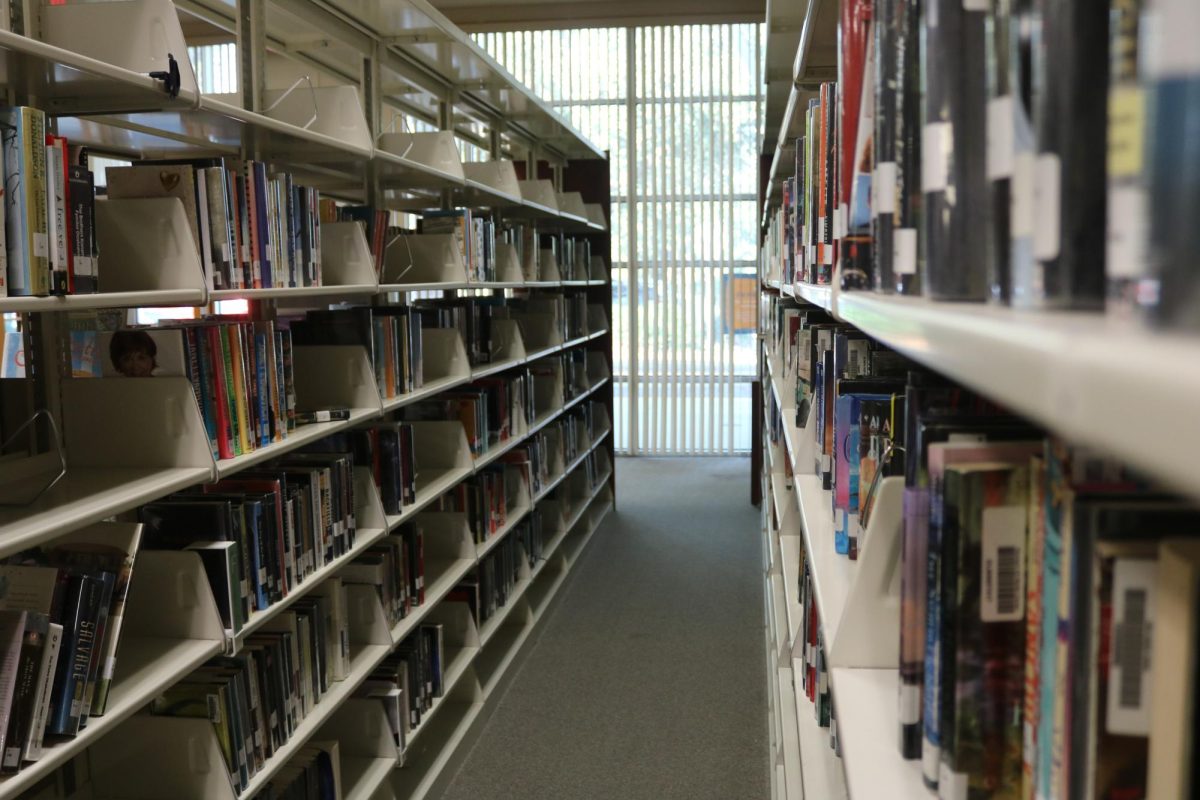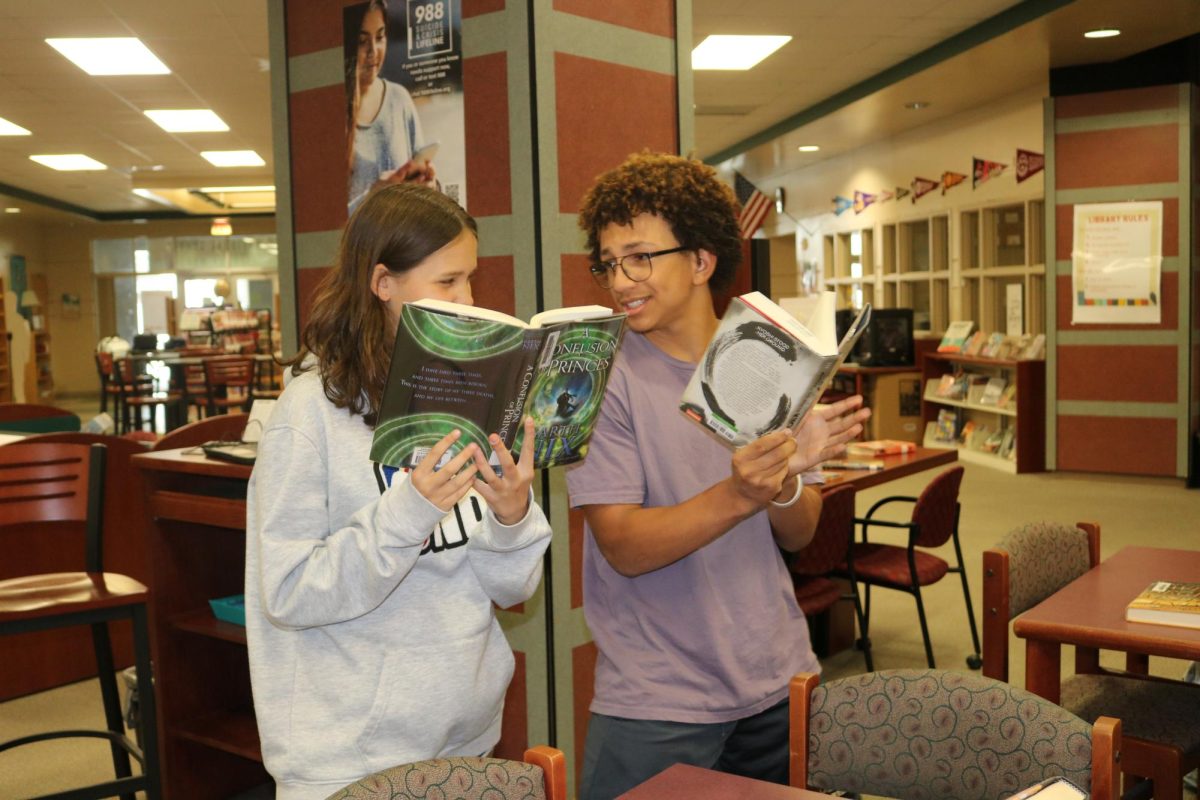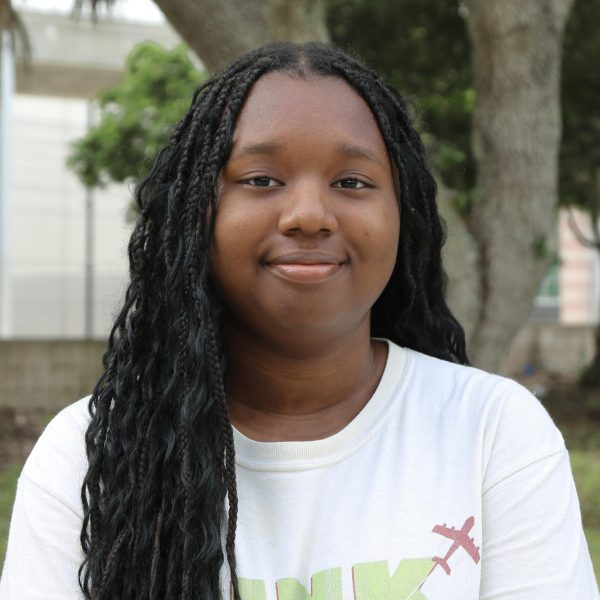Reading is an important skill that can help carry us far in life. With the help of libraries, reading has become more available. April 7th to April 13th marks the beginning of National Library Week in the United States. National Library Week celebrates the accessibility of library resources and the benefits of reading books. Its main goal is to encourage students to check out books from their local libraries and read them. Here at Olympia, our media center decided to hold a book tasting for students to look around the library and to choose a book that they would like to read. We asked one of our librarians about the book tasting, and here’s what Miss Joy Harrigan shared!
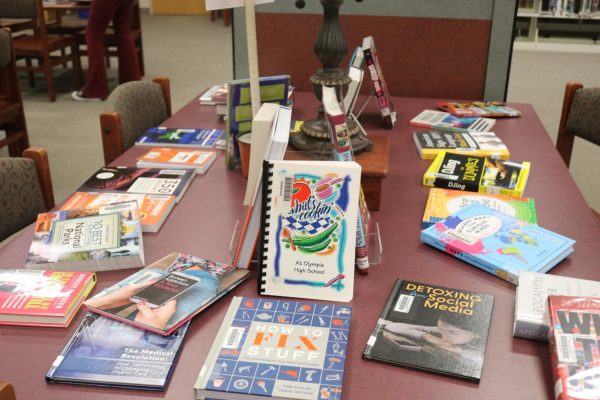
What was the main reason as to why you created the book tasting?
“The main reason as to why I decided to set up the book tasting is not only because it’s National Library Month, but because I want to encourage students to read more. I don’t really see many students going to the library and checking out a book to read here. I know when I was in highschool, reading was encouraged. Especially when we had book clubs and book related groups, we would go after school and pick a book to choose to read as a group or we would have our books that we read and swap them [with] each other. Being a good reader is important because it also makes you a better writer. You are able to use that skill in things like creating a scientific paper, or writing an essay for English, or even in some cases, in math,” Miss Joy said.
How long did it take you to set up this book tasting? What books/types of books would you recommend for students to read if they are unsure of where to start?
“When it comes to setting this event up, it took me about two weeks to do so. I had some ideas to start with, like setting up each table with a table cloth and to create brochures with each book in a station with its description, so that students could see what book that they feel the most inclined to pick up and read. I wanted students to feel more interested in reading a book and going to each station to see what they liked. As to what I would recommend to students when it comes to picking a book to read, I would say that they should start with anything that they find interesting. You could probably find something that you like in the graphic novel section, or even in the non-fiction section. I know when it comes to the non-fiction section, most people [may] find it boring, but there is a lot that you could choose from. I know one girl here checked out a book on fixing stuff because she has a hole on her wall. She picked up the book to learn about how to fix the hole in her wall. There are other books in this section that you could also read about, like on the sign language alphabet or a cookbook,” Miss Joy shared.
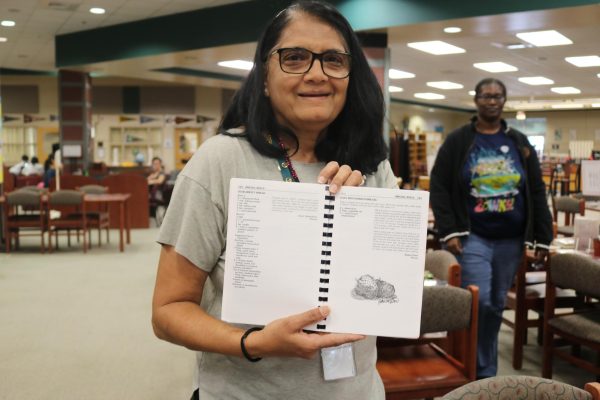
What is one thing that you would like students to take away from this experience or about reading in general?
“What I want students to take away from this is that reading is important. We want this to be a way for students to pick up the interest of reading more. Something important that we must realize is that reading gives you power and with that power you are more informed of the world around you. We need to be more aware of what’s going on around [the] world because we have the tendency to just focus on what is going on only in the United States and not anywhere else. That tends to build a little bit of ignorance. You could be more informed about what’s going on in the world by reading a book about the Hong Kong protests or on global warming,” Miss Joy explained.
Fourteen tables in the library are used to display these books, with each station containing a sign with the station number and a large spread of books from each genre, ranging from horror to romance. Below are some pictures of books in each station!
(Station 1)- Graphic novel
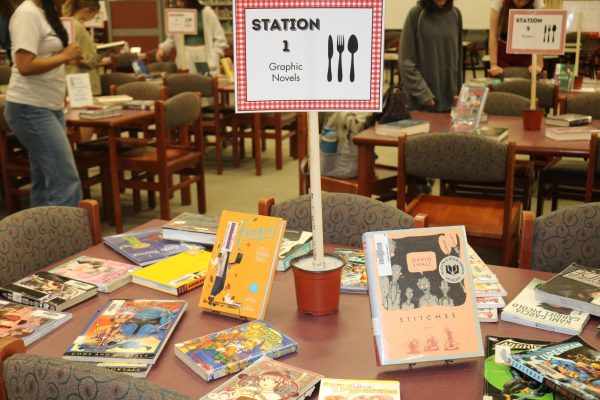
(Station 2)- Dystopian novel
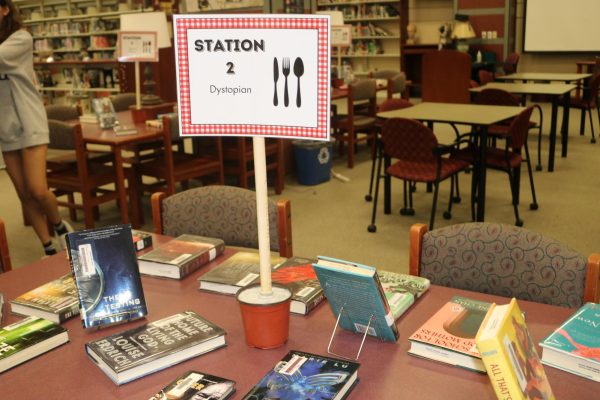
(Station 3)- Fantasy

(Station 4)- Science fiction
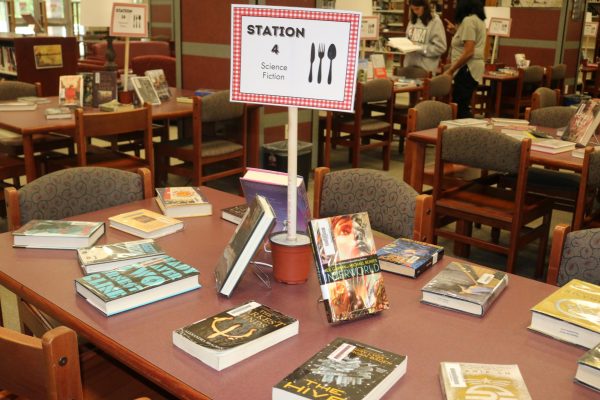
(Station 5)- Mystery
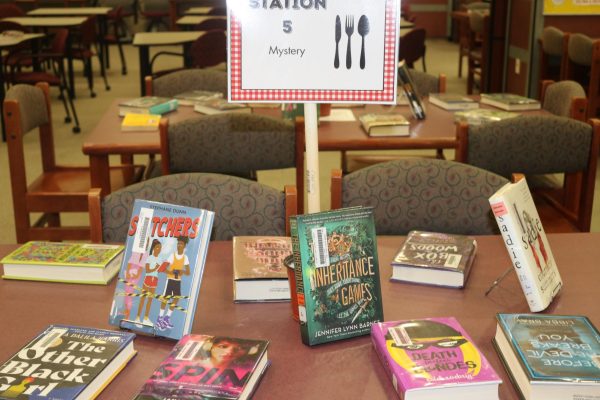
(Station 6)- Adventure
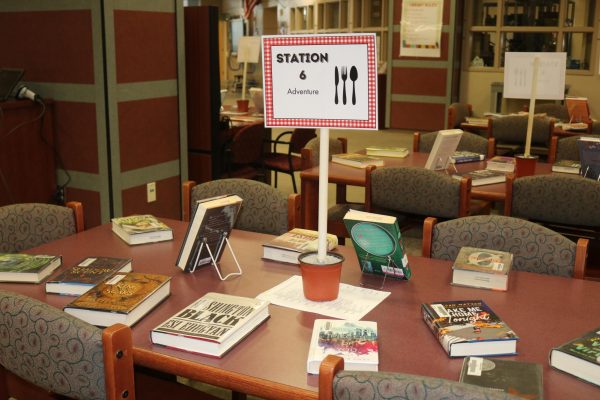
(Station 7)- Sports Fiction
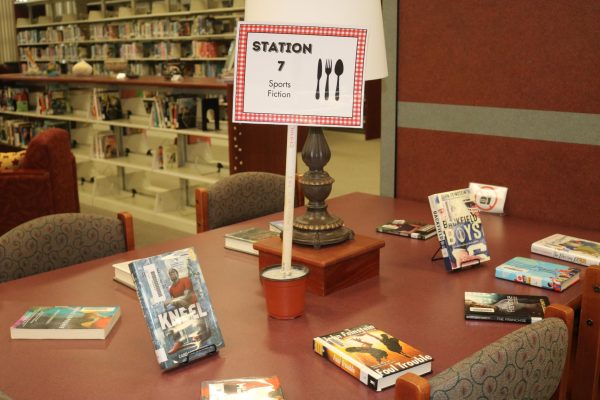
(Station 8)- Horror

(Station 9)- Romance

(Station 10)- Historical Fiction
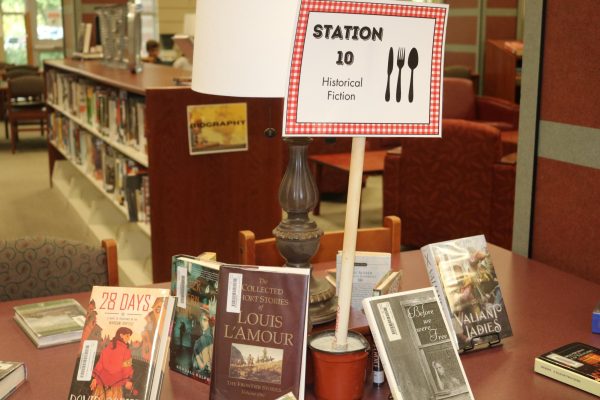
(Station 11)- Biography Memoirs
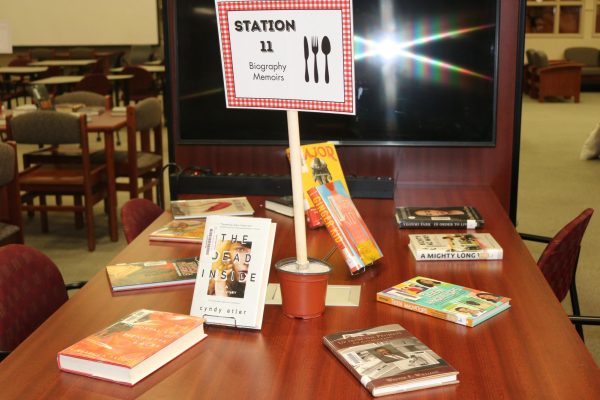
(Station 12)- Non-fiction
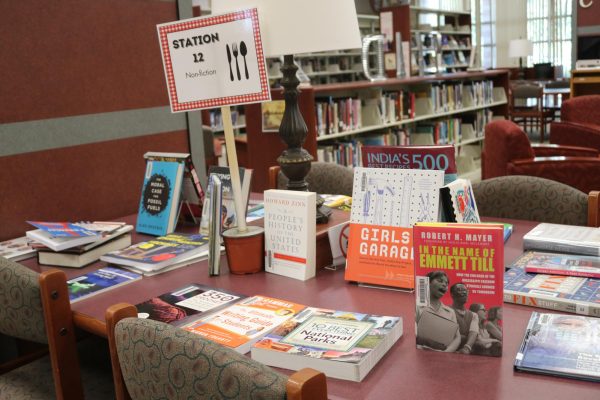
(Station 13)- Sora
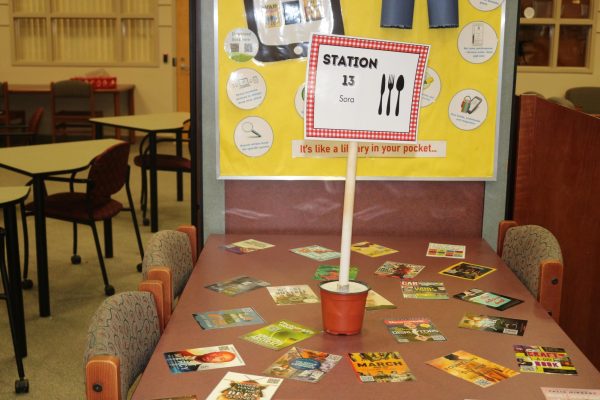
(Station 14)- Foreign Language
